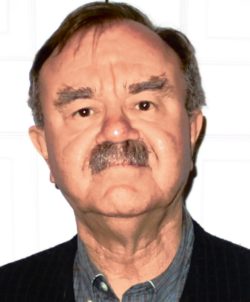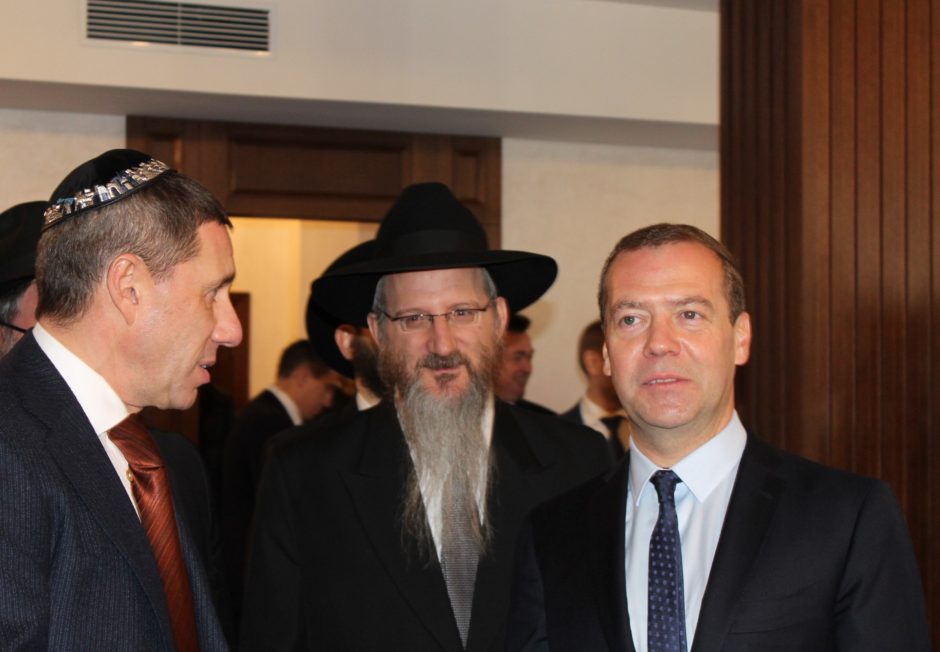The war in Syria, nuclear proliferation, trade and the Israeli-Palestinian issue were on the agenda during a November 9-11 tour of Israel and the Palestinian territories by Russian Prime Minister Dmitry Medvedev.
He began his trip, to mark 25 years of diplomatic ties between Israel and Russia, with a visit to the Western Wall in Jerusalem’s Old City.
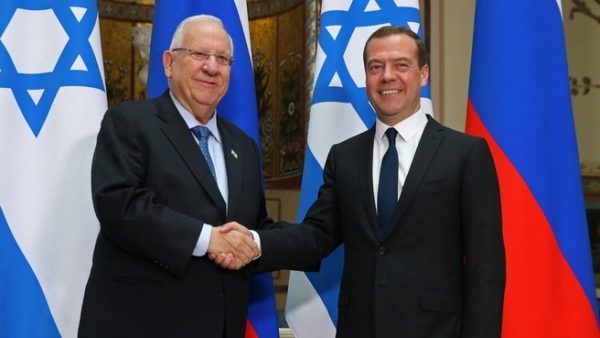
He met with President Reuven Rivlin, Prime Minister Benjamin Netanyahu, and opposition leader Isaac Herzog of the Zionist Union, among others.
Medvedev told Netanyahu that terrorism threatens Israel in a “very unique way,” but Russia also suffers from it. “This is why there is a need to fight terror together,” he stated.
In turn, Netanyahu described Russia and Israel as partners in combating radical Islamist terror and stressed that Russia and Israel, along with many other countries, share the goal of eliminating the Islamic State jihadist organization.
Netanyahu and Medvedev discussed Iran and the 2015 deal that six world powers, including Russia and the United States, struck with Tehran to limit its nuclear capacity. “We are determined to prevent Iran from acquiring nuclear weapons,” Netanyahu said. “Iran has espoused the destruction of Israel and supports terrorism on five continents.”
He repeated that Iran must also be prevented from establishing military bases in Syria under any circumstances, whether or not it attempts to do so as part of a ceasefire arrangement in Syria.
Iran, he added, must not be allowed to establish “Shi’ite militias, which it is organizing, and of course the arming of Hezbollah with dangerous weapons aimed at us.” One U.S. estimates places the Lebanese terrorist group’s arsenal at more than 100,000 missiles and rockets.
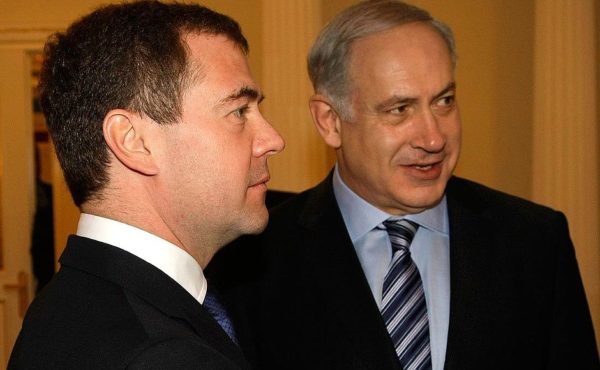
Prior to Medvedev’s arrival in the Middle East, Moscow mentioned the “special nature of Russian-Israeli ties,” which it said was largely due to the fact that “over a million of our compatriots, our countrymen from the former Soviet Union, have settled” in Israel.
As well, “Russia and Israel are brought together by opposition to antisemitism, other manifestations of xenophobia and inter-ethnic strife,” Russian Deputy Prime Minister Sergey Prikhodko told journalists.
“Together we stand against falsifying history, reconsidering the results of the Second World War, attempts to glorify accomplices of fascism, diminishing the decisive contribution of the Soviet Union to the victory over Nazi Germany, and denying the Holocaust,” he added.
Medvedev also reaffirmed Russia’s position on Israel’s legitimacy. He told Israeli media, “Our country has never denied the rights of Israel or the Jewish people to Jerusalem, the Temple Mount or the Western Wall.”
Russia and Israel can achieve a lot together, he noted. “I have in mind, of course, the origin and development of the State of Israel, common interests in the international arena and bilateral relations, primarily in the economic and humanitarian areas.”
Medvedev then visited Palestinian Authority President Mahmoud Abbas in Ramallah, declaring that Russia “consistently supports the implementation of the legitimate rights of the Palestinian people.”
Abbas said that Russia must play an effective and permanent role in any events related to the peace process.
Medvedev responded that Vladimir Putin’s September invitation to host direct talks between Palestinian and Israeli leaders was still on the table. “Mediation cannot replace direct talks between the parties, which is the best thing.”
He expressed hope that the new U.S. administration would participate in the Israeli-Palestinian peace process. He and Abbas also signed several bilateral economic and cultural agreements.
“Our recognition of the state of Israel cannot be for free,” Abbas was quoted as telling Medvedev. “As such, it is necessary for Israel to recognize the state of Palestine.”
In advance of his trip, Medvedev had admitted that Russian-Israeli trade had been developing at a lower rate than one might expect. As a result, the current trade turnover stands at around $2 billion.
“That’s not much and we used to have a trade turnover some 30 percent bigger than that but it shrank because of the global economic crisis and the devaluation of the ruble, as well as because of the decrease of imports into Russia,” he said.
“On the Israeli side, supplies of farming produce make up about one-third of the trade turnover,” he added. “Israel has splendid agrarian technologies and there’s much to learn from it in the field. Russian and Israeli agrarian centers and universities have special relations.”
Medvedev visited the Volcani Institute, the research arm of the Ministry of Agriculture and Rural Development, in Beit Dagan, which may be the most advanced facility in the world for agriculture research, focusing on plant sciences, animal sciences, plant protection, soil and environmental sciences, food sciences, and agricultural engineering.
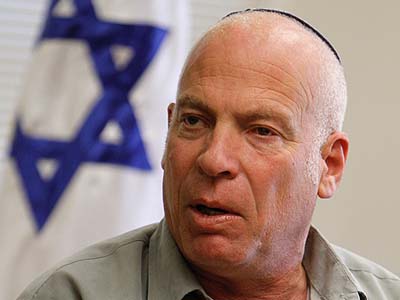
He was accompanied on his visit by Israeli Minister of Agriculture Uri Ariel to learn about advanced Israeli technology that can increase agricultural production and better its quality.
The backdrop to all this, of course, is Moscow’s deeply expanded involvement in the Syrian civil war. Putin wants more than anything else to reassert Russia’s role as a high-stakes player in the international system.
As well as operating a naval facility in Tartus, Russia hss an air base outside the Syrian coastal city of Latakia, which currently houses its warplanes used in its bombing campaign in support of Assad.
Netanyahu might not have been happy to see Russia get so involved in the already-complex Syrian equation, but he knows that the physical presence of Russian forces in Syria may help contain threats from Iranian proxies like Hezbollah, as well as from Sunni Islamist terrorists.
In the past year, Netanyahu and Putin have met four times. Their talks focused on coordinating their stances in Syria, Israel’s claim to the occupied Golan Heights in southern Syria, and the Israeli-Palestinian conflict.
Netanyahu was apparently assured by Putin that the country’s borders would not be violated in the course of the ongoing war. To that end, Moscow and Jerusalem have agreed to coordinate their actions in Syria and share intelligence.
Last June, Israel’s Ambassador to Russia, Zvi Heifetz, told Russian media that his country supported Russia’s war on terror in Syria.
Henry Srebrnik is a professor of political science at the University of Prince Edward Island.
